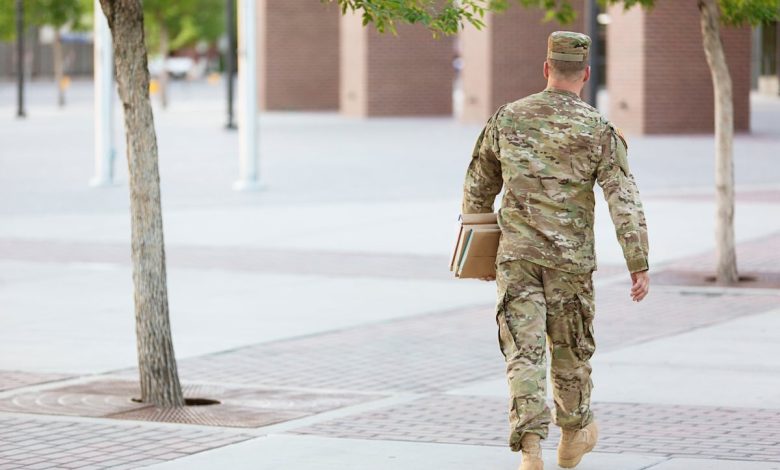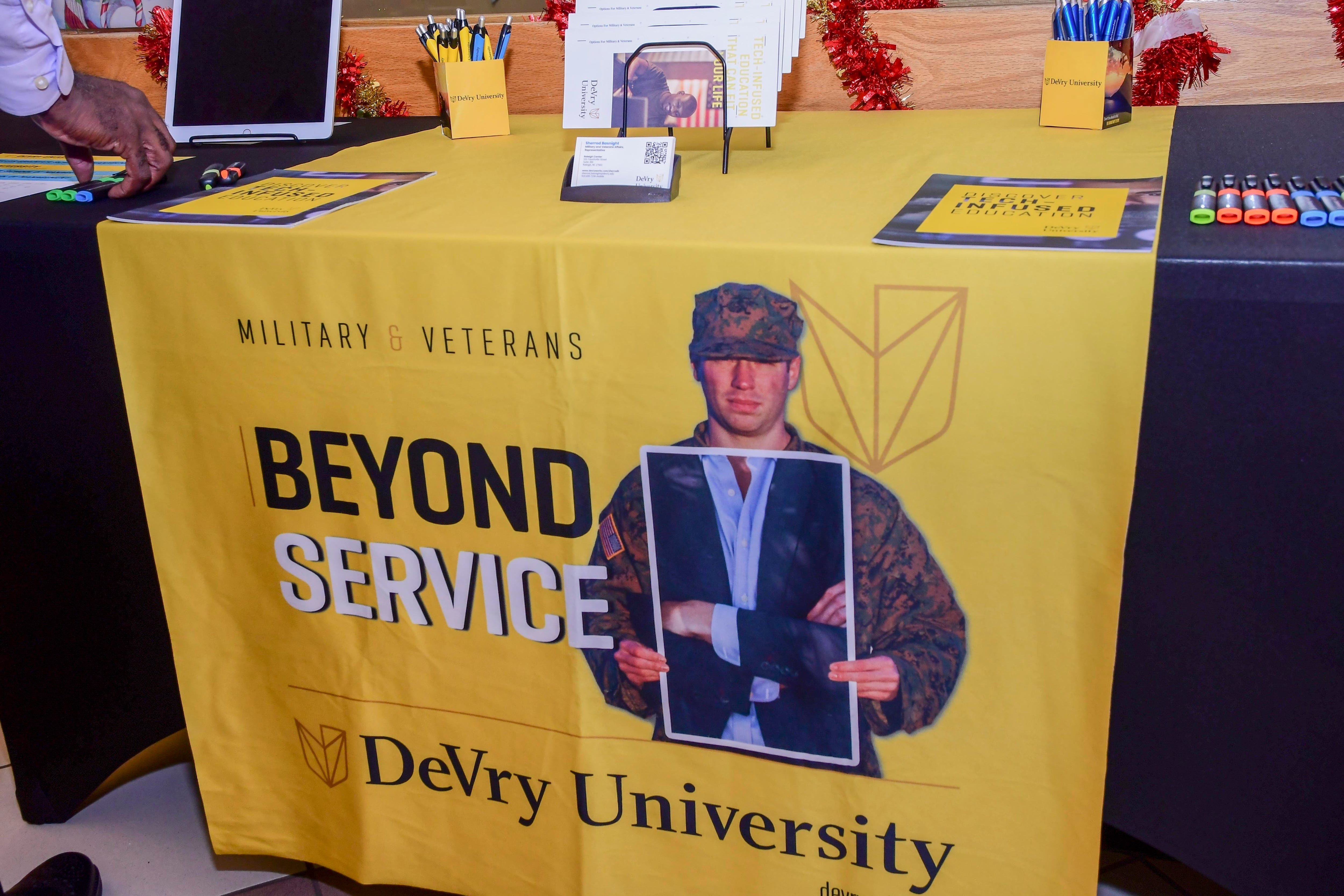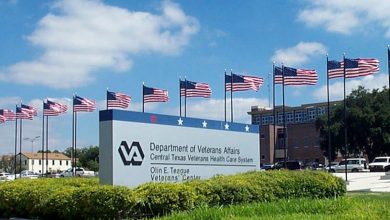A new bill aims to make defrauded GI Bill vets whole again. Will it?

Alphosia Black recalls hearing mixed reviews about the University of Phoenix.
It was 2011, and Black was looking for a school that fit her busy schedule. She worked full-time at the Defense Department as a unit administrator and served in the Army Reserve, working in command logistics. Black liked how Phoenix offered online and in-person classes, and she remembers Phoenix alumni co-workers at the Defense Department telling her a degree would help her career.
Black told Military Times she was uncertain, but the U.S. Department of Veterans Affairs listed Phoenix as a GI Bill-approved school, so she said it seemed vetted.
“I figured at least I would get a good quality education,” said Black, who served for 11 years.
An academic adviser for Phoenix who had a cubicle in her reserve building told her it would take about two years to graduate.
Black said advisers assured her that the school excelled at post-graduate job placement. She was provided pamphlets showcasing Fortune 500 alumni and was soon sold on the idea.
But today, Black alleges it was all a lie. Many classes were taught by underqualified ex-Phoenix students, Black said, and a two-year timeline ballooned to eight because the school stopped offering the major in which she was enrolled.
Black said this forced her to choose a different major more than 10 times. In 2013, she left the Army Reserve and eventually exhausted her Post-9/11 GI Bill benefits.
Veterans like Black told Military Times they received poor educations at for-profit colleges, which wasted their time and education benefits while making finding work after school more difficult.
The VA says it can do nothing for student vets like Black, because it has no legal authority to help them get their benefits back.
But a new bill making its way through Congress would give the VA the power to restore a veteran’s benefits if a school is found to be deceptive.
The Student Veteran Benefit Restoration Act, which passed the House and is currently awaiting Senate approval, would restore GI Bill benefits to veterans determined to have been ripped off by for-profit universities.
Impacted veterans and advocacy groups agree that such legislation is a step in the right direction. But left unaddressed is the plight alleged by veterans like Black, and a desire by such veterans and advocacy groups to see them made retroactively whole when it comes to the benefits they earned — and those they now feel were taken from them.
Those against such legislation argue it will overburden schools and potentially cause them to not accept GI Bill students at all, potentially decreasing available options for veterans.
Veterans claiming misconduct by for-profit colleges were put in contact with Military Times through Veterans Education Success, a nonprofit organization that works to uphold and improve veteran education benefits.
Among other alleged horror stories, students said they received good grades for incomplete assignments, were provided little help with job placement from their school after assurances were made and had trouble finding work because of the for-profit schools’ reputation.
Black isn’t the only one to cry foul against for-profit universities.
Several for-profit schools across America have in recent years been involved in lawsuits alleging deceptive marketing when recruiting military students and veterans.
The Federal Trade Commission reached a settlement with the University of Phoenix and its parent company, Apollo Education Group, in 2019 for $191 million after charges were filed against the school for falsely claiming it had relationships with Fortune 500 companies and their employees.
Earlier this year, the California Attorney General’s Office reached a $4.5 million settlement with the school, alleging deceptive marketing practices aimed at military students and veterans. The school remains approved for GI Bill benefits.
Eleven other schools the VA has approved for GI Bill benefits have also reached settlements with the FTC, according to VA data. Allegations involved falsely claiming affiliation with the U.S. military, falsely advertising job assistance and providing misleading statements about employment rates and post-graduate income levels.
But veterans advocates say such measures will fail to address bad-actor schools or help ensure veterans like Black are made whole.
University of Phoenix officials pushed back against such allegations in an emailed statement to Military Times, saying the school “is proud of our veteran alumni and their accomplishments.”
“Tens of thousands of military-affiliated students have benefited from our career-focused programs taught by faculty who are experts in their field,” said Andrea Smiley, the school’s vice president of public relations.
Smiley cited letters from veteran alumni who noted how the school’s flexible scheduling fit their busy lives, among other benefits.
“Military-affiliated students choose to study at University of Phoenix because of the value and flexibility we provide, and we will always remain committed to serving their unique needs,” she said in the email.
The school declined to comment on the changes it made to address allegations of deceptive marketing practices, poor education and inadequate post-graduate job assistance.
Military Times inquired about the resources Phoenix provides to students for job placement, the success rate of graduate job placement and the type of help the school tells students they will receive.
Phoenix also declined to comment on allegations that the institution stopped offering majors in which students were enrolled or that school officials encouraged students to take out federal loans. The school did not provide requested data about the number of GI Bill-funded students who have attended the University of Phoenix.

School officials did connect Military Times with multiple alumni who reported a positive experience during their time at the institution.
Patrick Aldridge, a Navy veteran, said his University of Phoenix degree helped him secure a high-paying job after graduating. He described his professional life before and after Phoenix as “night and day.”
Darrin Bovia, a former Army staff sergeant, graduated from the University of Phoenix in 2016 with a bachelor’s of science degree in business administration and management. Bovia now works for the Homeland Security and Emergency Management Agency.
“I personally feel like I got everything that I thought I was going to get,” Bovia said.
“I knew I wasn’t going to MIT or Harvard or something like that.”
IF IT’S BROKE, FIX IT
The Post-9/11 GI Bill provides individual veterans with full tuition at public state universities, and nearly $29,000 a year for private universities — along with a monthly rent stipend.
Over the course of a four-year degree program, the total value can exceed $200,000, depending on an individual’s school and housing situation.
And because that money is guaranteed — so long as students follow VA guidelines — veterans advocates have long worried the benefit represents an irresistible draw for scammers and opportunistic education institutions, some of which promise valuable degrees and post-school career assistance without delivering either.
When it comes to veterans like Black and others who allege they were sold on false promises, VA spokesman Terrence Hayes said the department has no “legislative authority to restore GI Bill benefits solely due to misrepresentation.”
Misrepresentation is defined by law as a misleading or false statement provided to a student, the public or an agency.
That’s what the Student Veteran Benefit Restoration Act seeks to fix. The legislation would give the VA legal authority to restore GI Bill benefits if a school engages in deceptive marketing practices. Such practices are what the FTC has accused Phoenix of, and what Black said she experienced.
Bill sponsor Rep. Delia Ramirez, D-Ill., told Military Times that the bill does not cover GI Bill users who have already used up their benefits, such as Black. But she said she hopes a retroactive component will be added to the bill before it becomes law.
One of the most important aspects of the bill, Ramirez said, is that it forces for-profit universities to pay the VA back if it’s discovered the institution deceived a GI Bill user.
“It makes these universities who are predatory and fraudulent think twice,” Ramirez said.
Veterans, experts and advocates say the bill is a positive step, but they’re not convinced it provides a solution to what they describe as a two-pronged problem.
If a veteran is defrauded, no adequate solution exists for veterans to get back what was taken from them, they say. And even if a school is credibly accused of taking advantage of veterans, the VA at times has continued to accredit that school, potentially endangering future GI Bill recipients.

Hayes told Military Times that the department does not track how often veterans are misled by schools.
But a 2019 VA Inspector General investigation revealed that more than 11,000 GI Bill students were enrolled in schools that had falsely represented accreditation status or student outcomes.
There were reportedly 549,803 Post-9/11 GI Bill recipient students in the 2023 calendar year, according to data released in July. The VA paid more than $4 billion in tuition and fees for those veterans, with more than a quarter of that money spent on for-profit universities.
USA Today reported last year that Phoenix receives the most GI Bill funding of any university, brining in $1.6 billion in such funds from 2013 to 2021.
SHOULD MORE BE DONE?
Helping veterans who lost money to the for-profit college industry should be a no-brainer, according to Will Hubbard, a Marine Corps veteran and vice president of Veterans Education Success.
But Hubbard said he remains skeptical the VA would wield such power even if it’s granted because of its history of not enforcing certain policies.
After the 2019 FTC settlement, the VA threatened to remove the University of Phoenix from its list of approved programs for violating a law that bans schools from using deceptive information to market their school to veterans.
But the VA didn’t follow through on the threat and Phoenix remains on their list of GI Bill-approved schools.
Hayes noted that VA regulations provide schools “with the opportunity to undertake appropriate corrective actions” in such situations.
In Phoenix’s case, Hayes said the VA determined the school had taken adequate corrective actions to avoid suspension of future GI Bill student enrollments.
The VA website’s section pertaining to GI Bill-approved schools shows the University of Phoenix page accompanied by two cautionary warnings: “Settlement with a government or state agency” and “the Federal Trade Commission has reached a settlement with this school.”
Of the 17,918 GI Bill-approved schools, 809 have such warnings, according to VA data. A dozen have reached settlements with the FTC.
Hubbard said that if the VA stopped approving schools with these warnings, a significant amount of harm against veterans would be stifled.
David Thibodeau, an Army National Guardsman who accrued $83,000 in federal student loan debt after attending DeVry University, graduated in 2014 with a computer programming degree.
In the six years he attended online classes while working full-time, Thibodeau said he never had an interaction with a professor. Once finished, he was unable to find work and claimed DeVry couldn’t assist with job placement services because the school only offered assistance at their Chicago in-person campus. Thibodeau lived in Maryland.
“We rely on that accreditation process to vet these schools for us,” said Thibodeau. “We see they’re accredited, we assume there’s been some due diligence, that these schools are legitimate. … I’d like to see some accountability there.”
In 2016, DeVry University agreed to a $100 million settlement after the FTC alleged the school misrepresented its ability to help graduates find employment.
“DeVry University has never limited access to one-on-one faculty interactions or career services,” Devry University said in a statement emailed to Military Times.
The university also said the FTC settlement found no wrongdoing on their part.
“The FTC’s complaint represented a disagreement on how to calculate employment outcomes,” the statement said. “There was not at the time, nor is there today, any nationally mandated or generally accepted methodology for calculating and reporting graduate employment outcomes.”

Some say that excessive VA oversight, meanwhile, could prevent some schools from accepting GI Bill students.
“Once you start overregulating, the schools are going to say, ‘It’s too much work, it’s too much red tape and we’re over it,’” said Kristina Keenan, deputy national legislative service director for the Veterans of Foreign Wars. “There’s a balance between how much we regulate and how much freedom schools have.”
Those representing for-profit colleges argue the current bill offers little redress for schools accused of wrongdoing.
“Currently, the bill relies on mechanisms that do not provide an institution the opportunity to dispute claims or receive substantive agency review of the facts,” said Jordan Wicker of Career Education Colleges and Universities, an organization that lobbies for the for-profit college sector.
TIME THEY WON’T GET BACK
Several veterans who spoke to Military Times said the insufficient education, lack of career opportunities and financial burdens they and others were left with after their GI Bill benefits were exhausted led to difficult times in their lives.
Toma Bartlett, who served in the U.S. Coast Guard as a machinery technician, runs a psychiatric mental health facility in Idaho called H3O Wellness, which focuses on interventional medicine for mental health.
He enrolled in the University of Phoenix in 2005 but said he got none of the post-graduate job placement assistance the school advertised. Bartlett tallied about $40,000 in debt while receiving what he called a “garbage” education.
Bartlett has since encountered other veterans through his clinic who said financial debt led to psychiatric crises.
“We treat veterans within our clinic with active suicidal ideation and then you start asking them why and they’ll tell you one of the main reasons is [that] financially they’re upside down,” Bartlett said. “They thought life was going to be better for them.”
For a while, Black was angry and embarrassed at what happened to her. She said she still often thinks about other educational opportunities she may have missed out on after deciding to attend the University of Phoenix.
At times, confronting towering debt and career uncertainty even prompted contemplations of suicide.
“Maybe I would just be better off if I wasn’t here,” Black described thinking.
She eventually returned to school on her own dime at the University of California, Davis, where she received a certification in personal and professional coaching.
Black now tutors math for the Los Angeles Unified School District, but hopes to one day help service members transition out of active duty into civilian life using resources that set them up for success.
She says she’s also proud to be a part of an effort to help future veterans, even if that effort doesn’t lead to the restoration of her benefits.
Black testified in front of the Education Department in 2022 about her experience, and has since shared her story in person with congressional offices.
“I hope that it gives them confidence in the fact that if something does go wrong, then these institutions that we’ve set up will have their back,” Black said.
“And they’ll be able to be made whole again.”
Riley Ceder is an editorial fellow at Military Times, where he covers breaking news, criminal justice and human interest stories. He previously worked as an investigative practicum student at The Washington Post, where he contributed to the ongoing Abused by the Badge investigation.
Read the full article here







